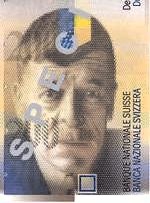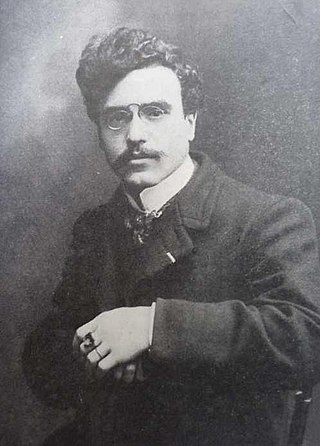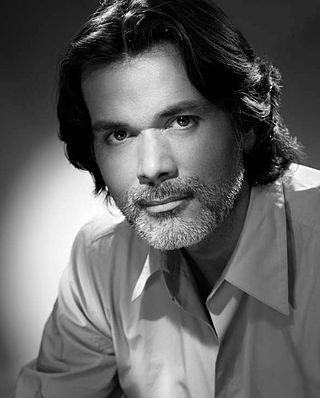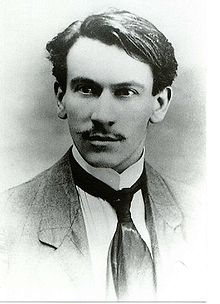
Pierre Eugène Drieu La Rochelle was a French writer of novels, short stories, and political essays. He was born, lived and died in Paris. Drieu La Rochelle became a proponent of French fascism in the 1930s, and was a well-known collaborationist during the German occupation. He is best known for his books Le Feu Follet and Gilles.
Gallimard Jeunesse is a French publisher of children's books. It is a subsidiary of Éditions Gallimard.

Charles Ferdinand Ramuz was a French-speaking Swiss writer.

Philippe Soupault was a French writer and poet, novelist, critic, and political activist. He was active in Dadaism and later was instrumental in founding the Surrealist movement with André Breton. Soupault initiated the periodical Littérature together with writers Breton and Louis Aragon in Paris in 1919, which, for many, marks the beginnings of Surrealism. The first book of automatic writing, Les Champs magnétiques (1920), was co-authored by Soupault and Breton.

Yves Robert was a French actor, screenwriter, director, and producer.

War of the Buttons is a 1994 comedy-drama adventure film directed by John Roberts. It was written by Colin Welland and based on the French novel La Guerre des boutons, by Louis Pergaud. The story, about two rival boys' gangs in Ireland, the Ballys and the Carricks, is set in County Cork, where it was filmed on location.
The War of the Buttons or La Guerre des boutons may refer to:

La Guerre des boutons or War of the Buttons is a 1962 French film directed by Yves Robert. War of the Buttons is about two rival kid gangs whose playful combats escalate into violence. The title derives from the buttons that are cut off from the rival team's clothes as combat trophies. The film is based on La Guerre des boutons, a novel by Louis Pergaud (1882–1915), who was killed in action in World War I and whose works portray a fervent anti-militarism.

Landresse is a commune in the Doubs department in the Bourgogne-Franche-Comté region in eastern France.
François Boyer was a French screenwriter. He achieved considerable success with his first attempt at screenwriting, Forbidden Games (1952). Initially, he found no studio interested in his work, so he redesigned the screenplay as a novel and published it in 1947 under the title The Secret Game. Although the novel achieved little or no success in its native country, it became a huge commercial success in America. All of a sudden, Boyer's novel was a hot property, so director René Clément, in conjunction with two writers Jean Aurenche and Pierre Bost, helped turn it into a screenplay. While Boyer receives story credit for the film, little is known of how much of his own screenplay made it to the screen. The film was a huge international success, and won an Honorary Oscar for the best foreign language film of its year.

Jean de La Hire was a prolific French author of numerous popular adventure, science fiction and romance novels.

Raymond Savignac, often just abbreviated to "Savignac", was a French graphic artist famous for his commercial posters. His work is distinguished by a humorous simplicity.

Christophe Barratier is a French film producer, director and screenwriter, and lyricist.

Jules Roy was a French writer. "Prolific and polemical" Roy, born an Algerian pied noir and sent to a Roman Catholic seminary, used his experiences in the French colony and during his service in the Royal Air Force during the Second World War as inspiration for a number of his works. He began writing in 1946, while still serving in the military, and continued to publish fiction and historical works after his resignation in 1953 in protest of the First Indochina War. He was an outspoken critic of French colonialism and the Algerian War of Independence and later civil war, as well as a strongly religious man.

Yann Samuell is a French film director and screenwriter.
Louis Calaferte was an Italian-born French naturalized novelist. He was born in Turin, Italy, but emigrated to France with his parents when he was very young, settling in a Lyon suburb where he spent the majority of his childhood and adolescence. In 1947, he set out for Paris to pursue his dream of becoming an actor, where he found a love for writing instead. Over the span of his career, he published a variety of works, including “a fantastic profusion of novels, short stories, essays, plays, poems and erotica of a particularly distinguished vulgarity that created genuine excitement in the most blase connoisseur”. This writing style resulted in a variety of literary prizes, including the Prix de l’Academie Française for Ebauche d’un autoportrait in 1983; for a collection of poems, Londoniennes in 1985; and for a collection of short stories, Promenades dans un parc in 1987. Calaferte died in Dijon, France on 2 May 1994.

War of the Buttons is a 2011 French film directed by Christophe Barratier.

La Guerre des boutons (Fr.) or The War of the Buttons, a novel of my twelfth year is a French novel written by Louis Pergaud, from the French region of Franche-Comté, and published in 1912. It describes the "war" between two gangs from rival villages, Longeverne and Velrans, in the countryside of Franche-Comté. The author got his inspiration from the village of Landresse, where he taught for two years. The title comes from the goal of the war, to get as many buttons as possible from the opposing side by cutting them off shirts and trousers. For the most part, the story is told from the point of view of the children from Longeverne.
Charles Derennes was a French novelist, essayist and poet, the winner of the Prix Femina in 1924.

War of the Buttons is a 2011 French adventure film directed by Yann Samuell. It is one of two films based on the eponymous novel by Louis Pergaud released in 2011.















